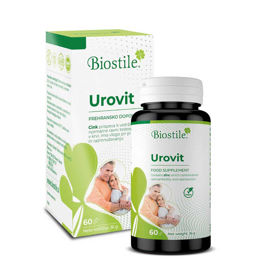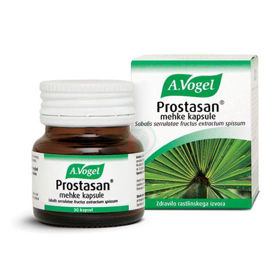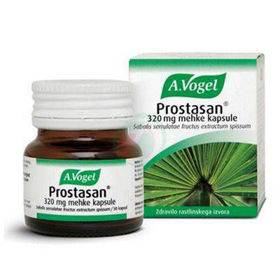The prostate is a male gonad that can be associated with several different disease changes. Among them, the most common is benign enlargement of the epithelial and fibromuscular parts of the prostate stroma (BPP). This causes various problems with urination, which are also commonly referred to as lower urinary tract symptoms (SSS). Due to its frequency, BPP is a public health and socio-economic problem that will become even more serious with the increase in life expectancy. Approximately 50% of men over the age of 50 show symptoms of BPP, compared to almost 100% of those over the age of 80.
SLOVENIAN RESEARCH
In the framework of two studies in Slovenia, we monitored the treatment of SSS / BPP with a daily dose of 320 mg of sawfly palm extract. The first study was open, prospective, conducted in three urological centers. Based on the written consent of the study, 76 men, aged between 45 and 80, were included in the study. All had moderate SSS / BPP, normal PSA values for their age, and good general health. The research was approved by the Ethics Commission of the Republic of Slovenia. Upon inclusion in the study, urologists recorded SSS in the International Urological Questionnaire (IPSS) and quality of life according to urological criteria, performed a transabdominal ultrasound examination of the prostate, determined the total PSA value and measured urine flow. Patients were asked about erectile dysfunction and libido. Patients received 320 mg of sawmill fruit extract per day in encapsulated form (Prostasan ®) for 12 months. Follow-up of the same parameters after 6 and 12 months followed. At the end, physicians and patients also recorded a subjective assessment of treatment. The second study was open, multicentric, involving 84 men based on written consent. The study was conducted by 19 family medicine specialists. The purpose of this study was to monitor the effects of phytotherapy at the primary level. Upon inclusion, physicians recorded SSS in IPSS, quality of life according to urological criteria, and determined the overall PSA value. Patients received the same therapy for 6 months as in the first study. Follow-up after 3 and 6 months followed.
RESULTS
In the first study, IPSS decreased from an average of 14.46 +/- 5.36 to 11.08 +/- 3.92 (p = 0.0000), and quality of life (QoL) improved (decreased) from 2.72 +. / - 0.96 at 2.25 +/- 1.06 (p = 0.0001). Urine flow increased from 13.94 +/- 5.00 ml / s to 15.34 +/- 4.07 ml / s (p = 0.0005). The PSA value did not change statistically significantly. 86.8% of patients rated the therapy as successful. As can be seen in the table, the values after 12 months of therapy further improved compared to the values after 6 months. The data from this study show that the effects improve over time, ie over a period of 12 months. Another study found a decrease in IPSS from 12.67 +/- 5.06 to 9.19 +/- 5.44 (p = 0.0000), an improvement in quality of life (QoL) from 2.39 +/- 1.22 to 1.75 +/- 1.16 . PSA values did not change statistically significantly. The proportion of patients with satisfactory libido increased during therapy. The data show a declining trend in erectile dysfunction, but this was not statistically significant. 83.3% of patients rated the therapy as successful.
Results of the first and second research: monitoring of IPSS, quality of life (QoL), values of total PSA in baseline values and after 3, 6 and 12 months of therapy with 320 mg of sawfly extract daily.

Summary and key messages of both surveys:
•The results of the first and second studies show that therapy with a daily dose of 320 mg of sawmill fruit extract significantly improved the symptoms evaluated by IPSS and quality of life (QoL). In both studies, the vast majority of patients rated the therapy as successful.
•The research was conducted by different groups of independent physicians. The results show a comparable improvement in IPSS values and quality of life (QoL) of men according to international urological criteria.
•The results do not indicate that the therapy interferes with sexual function. In another study, the proportion of those satisfied with sexual libido increased, which is comparable to one of the surveys in vica (Suter et al. 2013)
•Based on both Slovenian studies, it could be concluded that Prostasan is a safe and effective natural medicine for the treatment of moderate levels of SSS / BPP. In the future, it would be sensible to carry out further research with a longer period of therapy and an appropriate control group.










